What makes drivers angry?
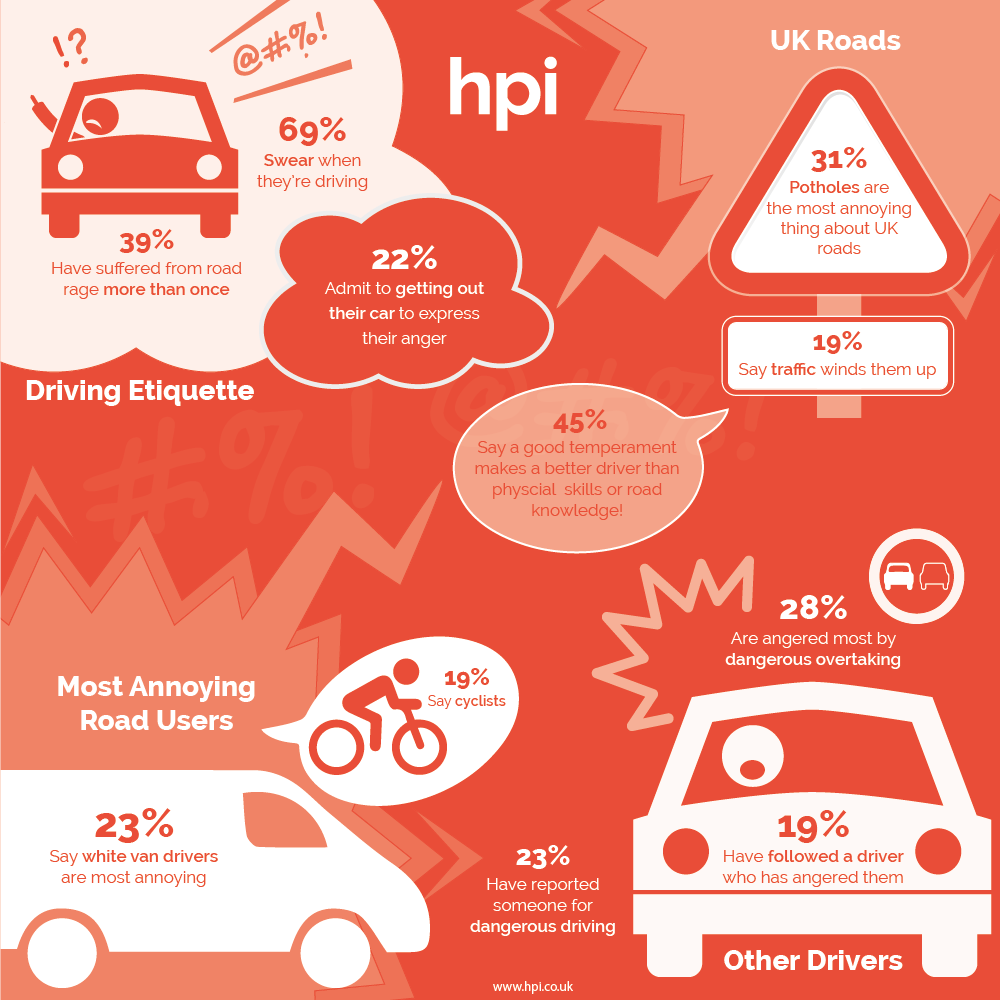
To see just what irks Britain’s drivers the most, we carried out a survey to pin down why they lose their rag the most easily, how this anger affects them and what they do about it. We first asked just over 1,000 respondents to rate themselves from one to 10 in terms of how irate they get when driving. The fact that 2.7% said they’re always furious is worrying; presumably they’re spoiling for a fight before they’ve even got into their car. More reassuring is the fact that more than twice as many drivers (6.1%) claim to always be calm.
You’d think that the reasons why people get angry when driving are pretty obvious, but despite this, thousands of hours have been devoted to researching the subject. The people who blow their top when you stand in their way in the supermarket will be the ones who are incandescent with rage when you cut them up in traffic. The problem is that while you can apologise in the supermarket, you can’t so easily when you’re cocooned in your car – so the assumption is that your manoeuvre is deliberate rather than accidental.
Almost half of drivers said they’re most likely to get angry when they’re in the car on their own, although more than a third said it makes no difference – they’ll lose their temper whether they’re alone or not. Just one in six said they’re most likely to get tetchy when they’ve got passengers in the car. Asked when they’re most likely to blow their top, rush hour claimed second place with more than a third of the vote – but in first place was any time of the day, which edged just ahead. It sounds as though our roads are a powder keg just waiting to blow…
The trait in other drivers that’s most likely to wind us up is dangerous overtaking; that’s what annoys 28.3% of motorists the most, followed by impatience (which includes tailgating); 21.2% of our respondents get ticked off by that one. Other drivers using their mobile come in third (with 17.4% of the vote) followed by speeding (9.6%) then being gestured at (7%).
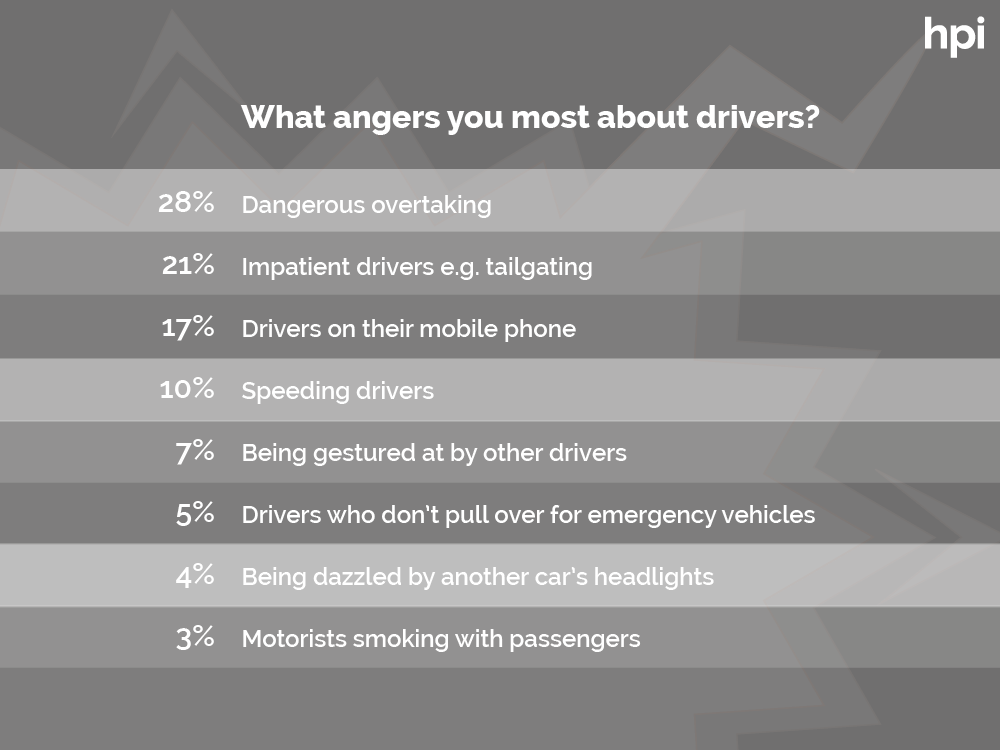
An Australian study in 2011 showed that some victims of road rage try to get their own back by driving aggressively, to correct the behaviour of others. By speeding, tailgating or cutting people up, some drivers hope to modify the behaviour of other drivers, who don’t behave conscientiously or courteously enough. Which makes you wonder where it’ll end; motorists getting ever more aggressive with their driving to teach others a lesson sounds like a downward spiral that’s never going to end well.
What we really wanted to know of course, is how far motorists go to get satisfaction – or even revenge – when they feel they’ve been wronged by another driver. More than a fifth had got out of their car to express their anger with another driver and incredibly, almost a quarter said they had reported someone for dangerous driving with one in five admitting to following someone who has angered them – although we didn’t ask what came next…
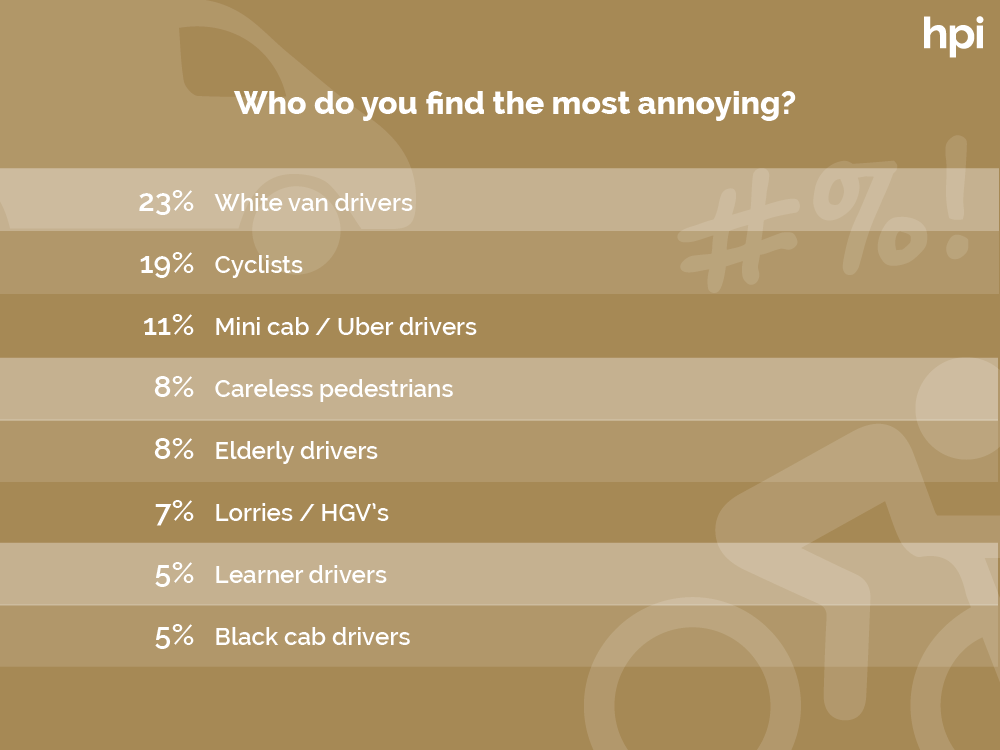
Thankfully, most drivers manage to control their anger pretty well; the most popular ways of venting their frustration is to swear (37.8%) or mutter to themselves (36.4%). How terribly British. Even better, while more than two-thirds of drivers admit to swearing while driving, this drops to just one in five if there are children in the car. Shouting and gesturing are popular too; they each got a fifth of the vote. Of course the problem is, once you’ve made a gesture at someone, if they see it you never know how far or how quickly things will escalate.
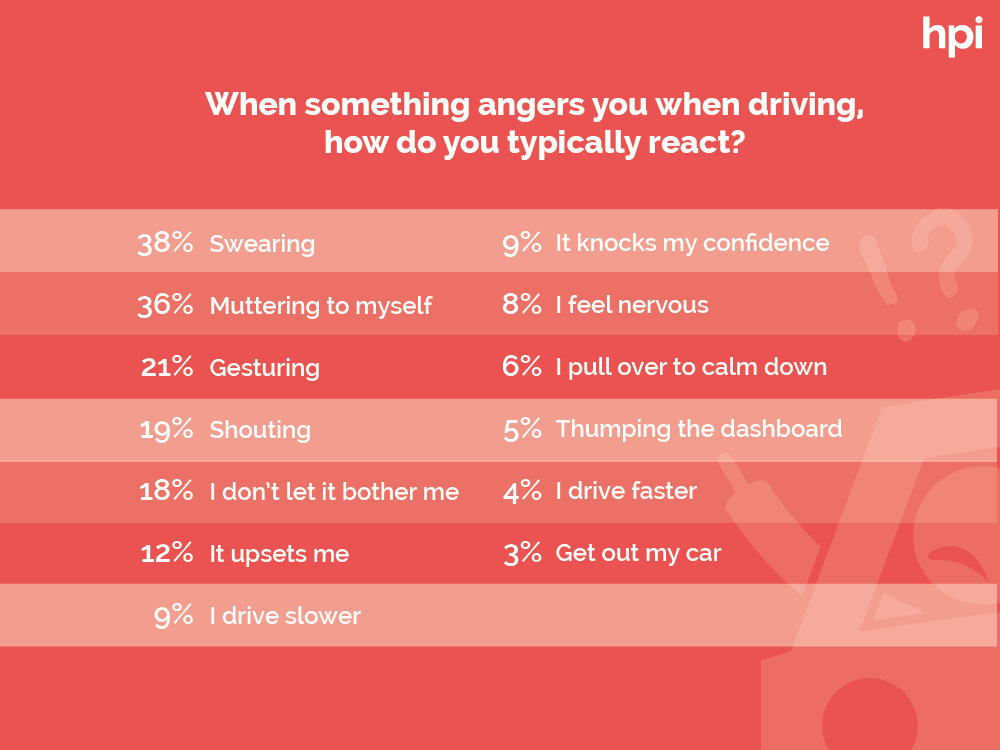
It’s this heat-of-the-moment reaction that can go really badly wrong, which is why exercising some self-control is essential. Turn the other cheek and the episode will probably be swiftly forgotten by both sides, but react angrily and it’ll turn into a fight with nobody wanting to back down. In some cases things can get really nasty; you’ve only got to watch the road rage videos on YouTube to see how messy things can get.
It doesn’t help that drivers are seemingly under siege nowadays, from all sides. So there are plenty of things in place to raise the hackles. It was nice to see that one in 12 drivers don’t really get riled by anything, but parking woes really get to a lot of motorists with 9% annoyed by there not being enough parking spaces, while the most frustrating thing for 9.3% of the people we spoke to, is the high cost of parking.
However, by far the most annoying thing for UK drivers would seem to be potholes, which is something the UK is very good at – and getting better each year as our road network crumbles. Almost a third of drivers nominated potholes as the thing that makes them the most angry when driving, with traffic jams and congestion in second place with a fifth of the vote. Roadworks were in third place on 15.7% – it would be nice to think they were there to fix all of those potholes, but as we know, roadworks don’t necessarily equate to activity or progress being made…
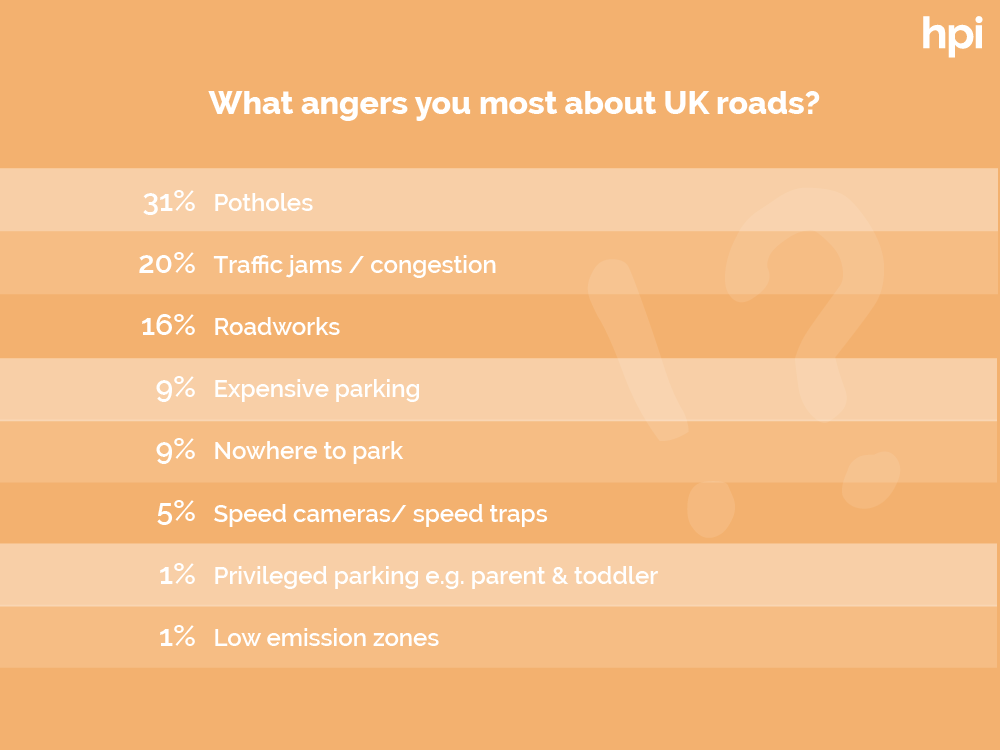
It’s not just stuff outside the car that gets drivers angry though – there are plenty of things going on inside that hack them off. The number one gripe that bothers more than a quarter of us is back-seat drivers; kids arguing with each other came in at number two with 16.8% of the vote. Passengers messing about with the music bagged third place, with one in 10 drivers getting wound up by this more than anything. However, more than a quarter of our respondents are so chilled out that they claim to never get angry with their passengers – probably because they never carry any.
Our final question was to pin down what makes a good driver, and this threw up quite a surprise because the most popular response was a good temperament. That claimed 45.3% of the vote, whereas the answer that we thought would be most popular was driving ability, but this came in second place, with 37.2% of our respondents going for it.
Perhaps the biggest surprise with our survey though, considering how stressful driving can be, is the fact that only two-fifths of motorists have suffered from road rage on more than one occasion – meaning three out of five drivers who have suffered from it, have done so only the once. If that isn’t an incredible showing of restraint, we don’t know what is. Maybe there is some hope, after all.
Richard Dredge
February 2019



